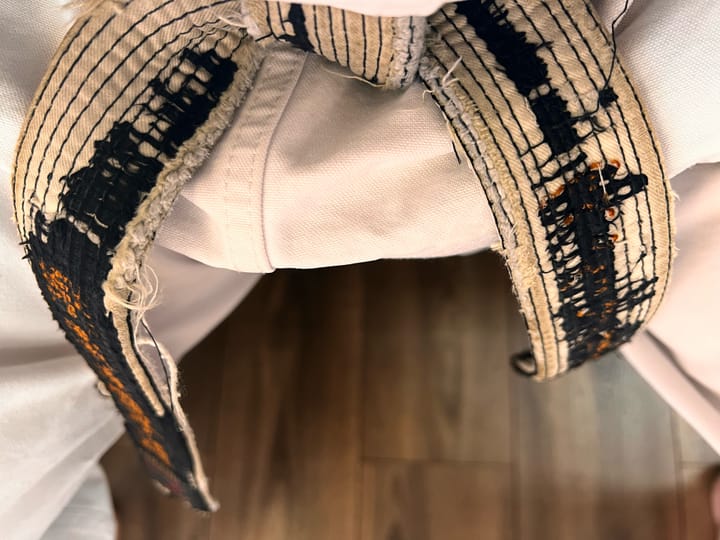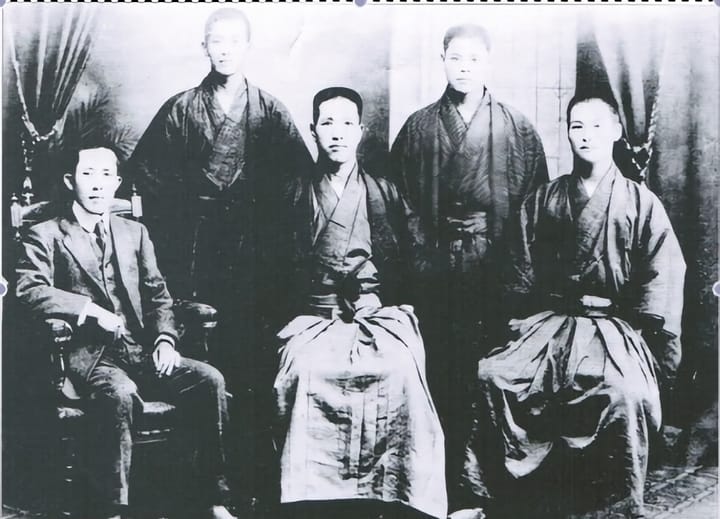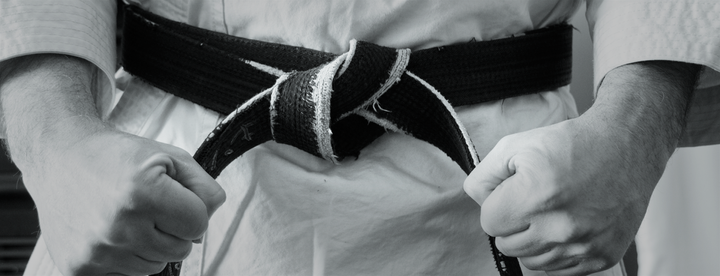Goju Karate is a non-profit enterprise dedicated to supporting and bringing karatedō to everyone.
Sometimes, one of our students buys a bottle of water after class. And if it’s the first time that they’ve purchased water, they are inevitably surprised when a front desk staffer asks for a single dollar in payment.
A bottle of water for a dollar?! Heck, at most fitness facilities and schools, a bottle of water’s condensation costs a dollar, and it’s not unknown to pay anywhere from $1.50 to $3.00 a bottle.
So how is it possible the dojo can offer a bottle of water for a dollar?
The answer to such a simple question is very enlightening – and it’s also what our karate is all about.
Non-Profit Dojo
When our dojo was first formed, we operated a small shibu (a “branch”) in Mill Valley, California. From that experience, and from the experience of our instructors in teaching karatedo and trying to live the philosophy of karatedo, we were determined to create a dojo that truly expressed the essence of karate.
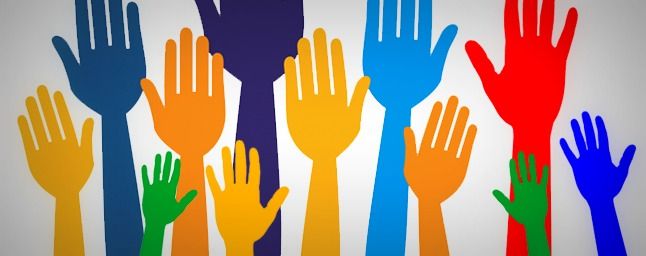
That’s why Goju Karate is a non-profit organization. Goju Karate isn’t “owned” by any person or group: as a non-profit, we’re owned by the public and the public interest. As such, we have a responsibility to practice good karate to the benefit of our community and our stakeholders: our students, our teachers and staff, our local community and the global community at large.
Once we made the decision to be a non-profit organization, many of our actions flowed forth, in support of that identity.
Stakeholders: Students
Our students are our primary stakeholders. The dojo has a primary responsibility to teach and support our students in their life goals to “become better” – and that includes supporting our students as they explore what “becoming better” means to them.
So let’s go back to that bottle of water.
Water (cold or room temperature) costs a dollar per bottle at the dojo because our cost is about a dollar (actually, it’s currently about 97 cents, but we make it a practice to round-up small sums in the interest of efficiency). That cost includes the actual cost of the bottle of water from our distributor, and any costs in shipping the water to the dojo, and the (minor) cost of a staffer unpacking, stocking, and doing inventory management of the bottle of water.
The dojo doesn’t make any profit on any item that we sell, including uniforms, gear, snacks, or drinks.
This is by choice.
Students can be assured that any product that they purchase at the dojo is the best possible product we can find in that category (the best lightweight gi, the healthiest snack, the best hand-wraps, etc.) and that we are selling them at the best price possible, without a profit.
If you ever find a product that we’re selling anyplace else (including online) for a price that’s less than what we’re selling it for, please let someone at the Front Desk know – as a dojo, we’re practicing ren ma – constant improvement – and we want to make sure that we’re selecting the best and most efficient suppliers for anything we provide.
Tuition and Donations Fund Our Dojo
Our dojo gains revenue from only one source: tuition. We do not charge for rank promotions, have special “blackbelt clubs”, or do anything else that, quite frankly, is ethically questionable.
Our business practices reflect our karate: honest, strong, forthright, and imbued with a strong spirit of compassion and energy. For instance, we do not require contracts of any kind from our students: we want students who actually study at our dojo to pay tuition, not students who signed long-term contracts that they now regret. Our students know they can cancel their student memberships or put them “on-hold” at any time, even the very last day of the month if necessary.
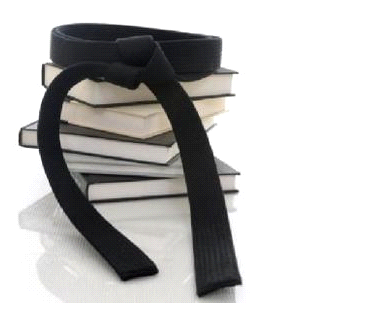
We are also fortunate enough to have received financial assistance from corporate and organizational sponsors (both within our local community and the larger, global martial arts community) and from individuals who support our mission.
It is important that we charge tuition for many reasons – but most importantly, in as much as we have a responsibility to teach our students, our students also have a responsibility to work hard to support the dojo community via contribution of tuition.
Our tuition collections and donations and contributions pay the expenses of our instructors and staff (not salaries: they’re volunteers!), and our operating expenses (which are modest – a dojo rarely is a money-intensive or asset-rich endeavor).
Our tuition and fundraising also provide one additional important benefit: we are committed to teaching all students who come to our dojo, regardless of financial need. That means that some students won’t be able to pay tuition, and our reserve collections allow us to fund their expenses.
We also use our tuition revenue to fund our special projects, such as our special needs programs. Students in those programs do not pay a tuition and do not pay for their uniforms: all those costs are underwritten by the dojo. (Sometimes, in special situations, we can’t fund a dojo project that we want to pursue, and so we’ll ask for specific donations that are ear-marked and directed only for achieving a specific goal, such as contributing to a domestic violence program in our community.)
Stakeholders: Teachers and Staff
After students, we also have a responsibility to our teachers and our non-teaching staff. Goju Karate has a responsibility to compensate all of their hard work fairly, and in a way that rewards them and recognizes them for the incredible contribution they make to the dojo community.
We invest in training, in tools and systems, and in any other support that we can help our teachers and staff “become better” as well. This also includes making time for everyone to train as part of their job responsibilities.
Goju Karate is also investing in the long-term, in helping individuals who have a passion and a talent for teaching to train to one day be able to assist instructors or even themselves become instructors.
Stakeholders: Local Community
Our dojo is a community in its own right: but it also exists inside a larger, local community here in New York City.
As karateka, we have a responsibility to practice our karatedo in our local community – in our families, the places we work and go to school, and among our friends. The same level of compassion that we train on the dojo floor can make a huge difference out on our city streets.

We also have a responsibility as a dojo to integrate community contribution into our teaching syllabus, and to give our students the ability to practice the leadership skills that karatedo teaches them. This is why we make community projects a part of senior kyu belt and all blackbelt promotions – and this applies to both adults and kids.
As a dojo community, we also act in support of important initiatives in our local community that we have direct expertise in, including preventing violence, increasing safety, empowering vulnerable members of our community, promoting good health and fitness, and much more.
Stakeholders: Global Community
And lastly, Goju Karate exists in a large global community of martial arts schools, and we have a responsibility to contribute to the health and vibrancy of that community.
We do that a few different ways. We’re active with a very innovative and influential group of progressive dojos throughout the globe. Our teachers and staff all contribute materials, time, and resources to those organizations, with the goal to develop a network of dojos around the world that make a difference in their communities.
We also contribute much of the material that we develop to the public, through our website and our publishing activities in books and video. We’re cognizant that ultimately our dojo is a content developer – our course material, our seminars, and more – and that this content can have value outside of our local community. We want to make that available at no charge or at very little cost as a way to contribute to the global martial arts community.
We also bring the power of our dojo community to bear on contributing to the solution to pressing global concerns, such as poverty and disempowerment among vulnerable groups, and we try to raise funds, skills, and other resources to aid individuals and groups working on these problems.
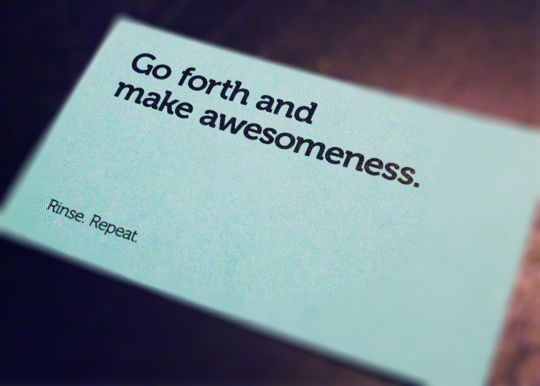
Good Karate
We teach karatedo in so many ways: on the dojo floor during class; in our lobby, where we have amazing exhibits of martial arts history due to the kindness of donors, historians, and collectors; at our Front Desk, where we always feature fresh fruit at no cost to raise awareness about good nutrition; and throughout our dojo where we have many of the basic concepts of our philosophy on our walls.
And one of those places that we teach good karate is with every dollar bottle of water. Being a non-profit school is a part of our path in karatedo, and we are very proud of the choices that we’ve made to support that path.



